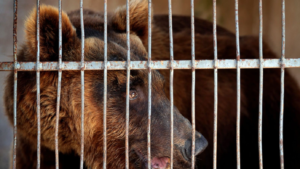From the Schengen zone agreements to life in the Gulf, coronavirus has shattered what is considered normal in a few short weeks.
The global pandemic of coronavirus will fundamentally re-shape the world order as it upends systems which publics have come to take for granted. Internationally, it is also accelerating the breakdown of the liberal international order. Major themes of the last decades, such as the global war on terror, the rise of populism and the retreat of democracy in countries like Russia have all reshaped the world. The rise of COVID-19 builds on these trends as it rapidly changes relationships between states. It is a black swan event that suddenly closed the previously open borders of the European Union in a way terror threats and migration could not.
This pandemic began in China in January, slowly percolating into other Asian countries such as Japan, Singapore and South Korea before it grew in Europe and the Middle East in February. However, much remained unchanged into mid-March when lockdowns began and international air travel suddenly slumped or stopped in some places. France closed its borders on March 16 and the European Union closed its external Schengen borders for thirty days beginning on March 17. The UK, which is leaving the EU, began a lockdown on March 24.
In the Middle East, border closures increased when it became clear that Iran’s authorities had allowed the virus to spread among its population and done little to mitigate the crisis. Iraq, Turkey, Kuwait and other neighbors shut off travel to Iran while flights were soon cancelled and some countries, like Kuwait, worked to bring their citizens back from Iran. Turkey was already checking Iranian arrivals on February 21 after receiving warnings that up to 750 Iranians had the virus. By March 29, Iran had registered 35,000 cases and 2,500 deaths officially.
The Middle East, unlike the EU, is a region of strong borders and civil conflicts. From Libya to Syria and Yemen there are conflicts that make it impossible for some countries to test their whole populations for the virus. While the pandemic has not transformed the region’s order in terms of borders, it has caused countries to become even more insular than they otherwise would be. In the Gulf, the world’s busiest airport in Dubai is closed. That is an unprecedented break on a conduit of international traffic that has seen more than 80 million passengers transit a year. Many of them fly to the UK, India, Saudi Arabia, the United States, Russia and China. The rest of the Middle East is grinding to a halt as well, including lockdowns in Egypt, Israel, Jordan and new measures to stop activities in Turkey. Countries that rely on tourism will see revenues disappear for the foreseeable future.
What this means for the Middle East is that stable countries will see their economies grinding to a half, at least temporarily. Israel saw almost one million people file for unemployment since lockdowns began in mid-March, putting almost a third of the workforce out of work. Less is known about what unemployment will do to Saudi Arabia, Jordan and other localities. However countries like Jordan are already facing hurdles with large numbers of Syrian refugees who have not returned to Syria and don’t look like they will anytime soon. Military-enforced lockdowns will make life difficult for the day laborers and marginalized refugees.
Beyond the Middle East, the pandemic is causing the same insulating lockdown effect in Africa, Asia and will likely continue the trend in the Americas. As most of the world concentrates on the virus, many groups and authoritarian regimes are exploiting opportunities to act amid the global shutdown. Terrorists murdered two dozen members of the Sikh minority in Afghanistan on March 27 and a bomb disrupted the funeral for the fallen. The attack came in the wake of U.S. Secretary of State Mike Pompeo’s trip to Kabul and Washington’s decision to cut $1 billion in aid to the Afghan government. The United States wants a peace deal with the Taliban to work and for the Kabul government to play ball. The aid cutoff is designed to pressure Kabul, but it will have long-term consequences. It’s hard not to see how the Taliban and other extremist hands will be strengthened amid the pandemic.
Similarly in Iraq, the United States is repositioning forces amid the pandemic. Bases at Qaim, Q-West and K-1 were transferred to the Iraqis in March. This comes in the wake of rocket attacks on U.S. forces in Iraq, including an attack in March that killed two U.S. personnel who were part of the anti-ISIS Coalition. One Briton was also killed. The United States has warned Iranian-backed proxies, but a plan to launch attacks on those proxies may face hurdles. Between Iranian threats and the virus, the United States has a difficult road ahead in Iraq.
In neighboring Syria, both Turkey and Russia are angling to wrest control of oil fields that the United States has been patrolling since Washington’s October withdrawal. Turkey has told Russia it wants to use the oil to rebuild parts of Syria. The United States is concerned about Russia’s moves now. While U.S. forces can celebrate one year since the defeat of ISIS in eastern Syria, Senator Lindsey Graham has warned about Russian-backed Syrian regime aggression. While Turkey is distracted by the pandemic, with cases rapidly growing to ten thousand in late March, Russia may have other plans. It has critiqued the United States for using an “accusing tone” against China over the virus origins, playing into conspiracy theories that have arisen in Iran and China that portray the United States as responsible for the pandemic.
Other areas where militants continue to exploit the world disorder to launch attacks include Libya and Yemen. Saudi Arabia intercepted Houthi ballistic missiles on March 28 fired by the Iranian-backed rebel group in Yemen. Fighting has also intensified in Libya as forces from Eastern Libya led by Khalifa Haftar fight against the Turkish-backed government in Tripoli. Haftar is backed by Egypt, Saudi Arabia, the UAE and Russia. Despite commercial air traffic slowing, it seems arms are still flowing to these conflicts.
The pandemic appears to only embolden authoritarian regimes. While some expressed hope it could bring a reduction in violence and peaceful gestures, North Korea chose to conduct missile tests. The regime, like others, does not seem deterred or even challenged by the virus. Similarly, terror groups across the Sahel in Africa continue to strike at and weaken a dozen states from Mauritania to Somalia.
There doesn’t seem to be much evidence so far that the pandemic has led to unified global leadership. International institutions such as the United Nations seem to be slow to react, with UN Secretary-General Antonia Guterres waiting until March 26 to appeal for billions to fight the virus. It remains unclear why the WHO waited until March 11 to declare the coronavirus threat a pandemic.
This leaves deep questions for U.S. strategy amid the pandemic. The U.S. National Defense Strategy envisions a growing need to confront Russia, China and Iran. It accuses China and Russia of wanting to shape a world consistent with their authoritarian models. It’s difficult to see how the United States can focus on this strategy during an unprecedented crises at home. That will mean continuing retreat from global affairs. This is a model that is vastly different than the “new world order” envisioned by George H.W. Bush in 1990, one built on U.S. leadership and with international cooperation. Progress towards democratization has slowed and been reversed in the last decades.
U.S. President Donald Trump has generally sought to reduce the U.S. global role, expecting other countries to pay and do their part. Washington is reviewing America’s commitment to Africa and AFRICOM, while also considering cutbacks to a key multi-national observer mission in Egypt’s Sinai. Changes on the ground in Iraq illustrate a looming problem. The United Kingdom, France, Czech Republic and other countries are withdrawing forces amid the pandemic. The United States appears to be battening down the hatches at a few remaining posts.
What happens in the long-term due to the effects of the virus? In Europe the EU has been criticized for its response and critics say its former status quo of open borders and policies is shaken to the core. This will tarnish EU institutions. The pandemic has forced most wealthy countries to rapidly close off their economies amid lockdowns. Poorer states are having a harder time and they may risk slipping into instability if they try draconian lockdowns. On the other hand, some existing authoritarian policies, such as India’s crackdown on protests in places like Kashmir, will go unnoticed amid the wider lockdown. Some countries in Africa appear to be using harsh measures already, using the pandemic as an excuse. It’s unclear how a lockdown can be enforced from Kenya to South Africa. The pandemic both erodes trust in regional and global institutions and pits countries against their own citizens as police and the military are sent to enforce lockdowns.
The end result will likely be a more divided and chaotic world order, with Western states being more isolationist in the short term. With the wealthiest countries in the world unable to deal with the tsunami of cases from the virus, poor countries will be overwhelmed. Border closures against pandemic threats will mean an end to the mass migration that has occurred to places like Europe, or it will mean more hostility to those migrants who force their way in. This creates a growing divide between the global south and others amid the pandemic. It also creates a divide between the arc of instability that links ungoverned spaces across the Sahel to Afghanistan where militant groups thrive. Weak states such as Libya, Yemen, Somalia, Syria only stand to get worse. China, Russia and Iran will take advantage of this crises to continue their policies that together seek to challenge the United States, the West and Western allies. The economic downturn in Western states in the wake of the lockdowns and stimulus packages will empower other countries that weathered the storm better. China is one of those countries so far. The debt incurred by stimulus has a ripple affect of potential inflation or other hangovers.




